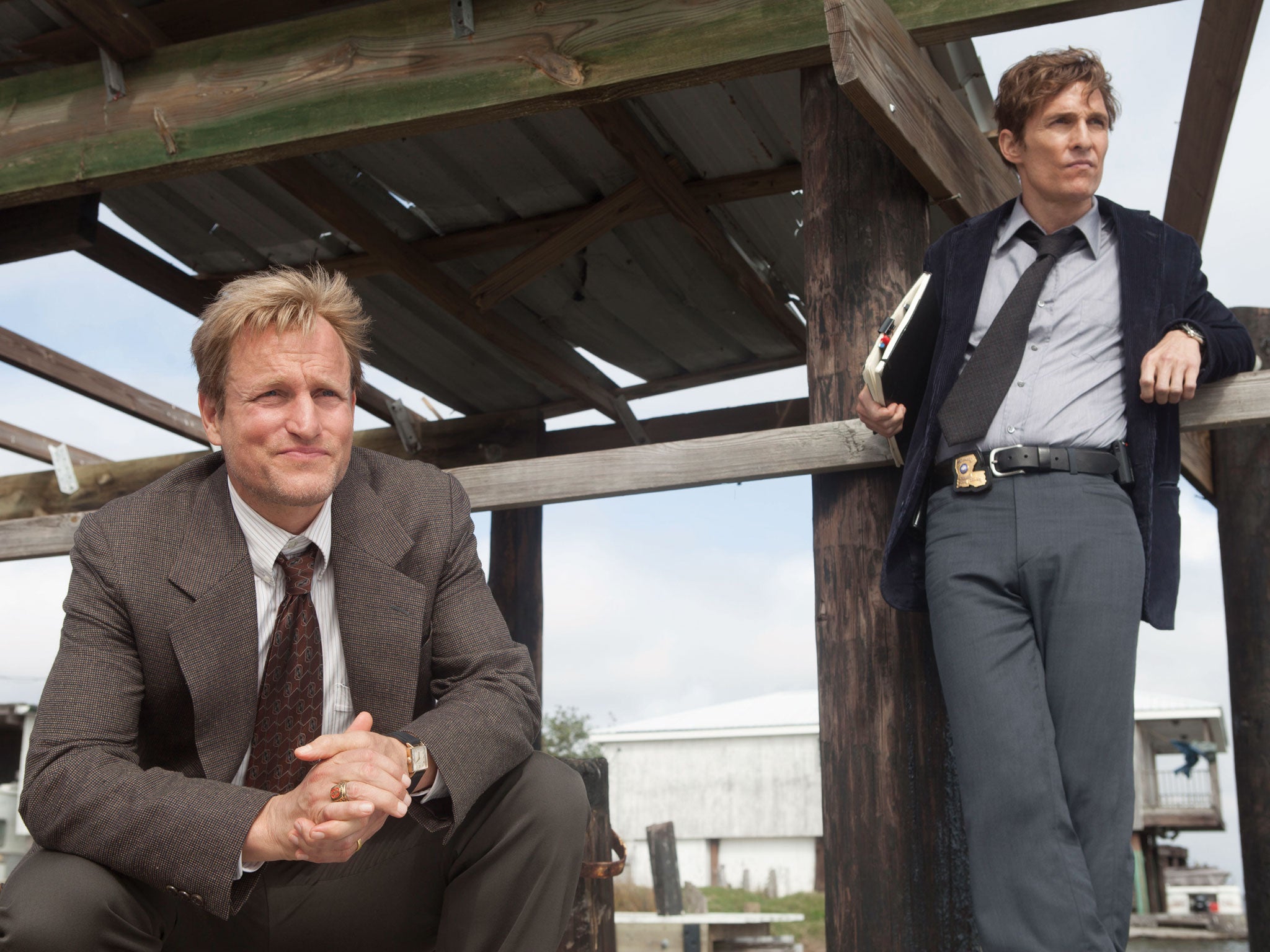Sophie Ivan: True Detective might well be cinematic – but is it truly great?

Your support helps us to tell the story
From reproductive rights to climate change to Big Tech, The Independent is on the ground when the story is developing. Whether it's investigating the financials of Elon Musk's pro-Trump PAC or producing our latest documentary, 'The A Word', which shines a light on the American women fighting for reproductive rights, we know how important it is to parse out the facts from the messaging.
At such a critical moment in US history, we need reporters on the ground. Your donation allows us to keep sending journalists to speak to both sides of the story.
The Independent is trusted by Americans across the entire political spectrum. And unlike many other quality news outlets, we choose not to lock Americans out of our reporting and analysis with paywalls. We believe quality journalism should be available to everyone, paid for by those who can afford it.
Your support makes all the difference.Like most square-eyed suckers for HBO shows, I was ready to fall in love with True Detective. The crime drama, starring Woody Harrelson and newly Oscar-crowned Matthew McConaughey, was heralded as “the new Breaking Bad” and I was hooked before they even started trailing the damn thing.
Four episodes in, though, my excitement has dissipated: for all its plush cinematography, star-spangled cast and clever-clever flashback structure, I’m left wondering whether there’s more to True Detective than tits, ass and testosterone.
For a start, the central murder – that of a white-trash prostitute – reeks of genre cliché, while the show’s odd-cop couple offer two hackneyed types for the price of one – alcoholic loner with dark past (McConaughey) and regular Joe mid-mid-life crisis (Harrelson). This tired dynamic is overlaid with pretentious monologues from McConaughey’s character which, notwithstanding the sterling delivery, sound like the musings of a precocious teenager.
Meanwhile, the few female characters granted speaking roles exist purely in orbit around the macho protagonists, while the rest roll like erotic tumbleweed through the bleak Louisiana landscape – a neon-lit gyrating buttock here, a trussed-up, ritually mutilated corpse there. It all feels more than a touch retrograde in the wake of such European- produced detective dramas as The Fall, Top of the Lake, Broadchurch, The Killing and The Bridge (all of which happen to feature female leads).
So, how to explain the adulation? Perhaps it’s down to the fact that True Detective reflects that truism of recent times, “TV is the new cinema”; it’s shot by feature-film director Cary Fukunaga and with its self-conscious flourishes, like episode four’s much-salivated-over six-minute unbroken tracking shot, and just-so score from T-Bone Burnett, it’s certainly got the production values. But are we too ready to assume that telly is great just because it is cinematic? Increasingly, it seems, we are seduced by empty shows such as True Detective and Netflix’s House of Cards because of their classy packaging.
In reality, the influential “quality” American shows that sparked talk of a new TV golden age – The Wire, The Sopranos – weren’t hits before they aired. They were experiments; not A-list juggernauts with ready-made cult followings. If audiences are to get the TV they deserve, perhaps it’s time we stopped judging box-sets by their glossy covers.
Join our commenting forum
Join thought-provoking conversations, follow other Independent readers and see their replies
Comments